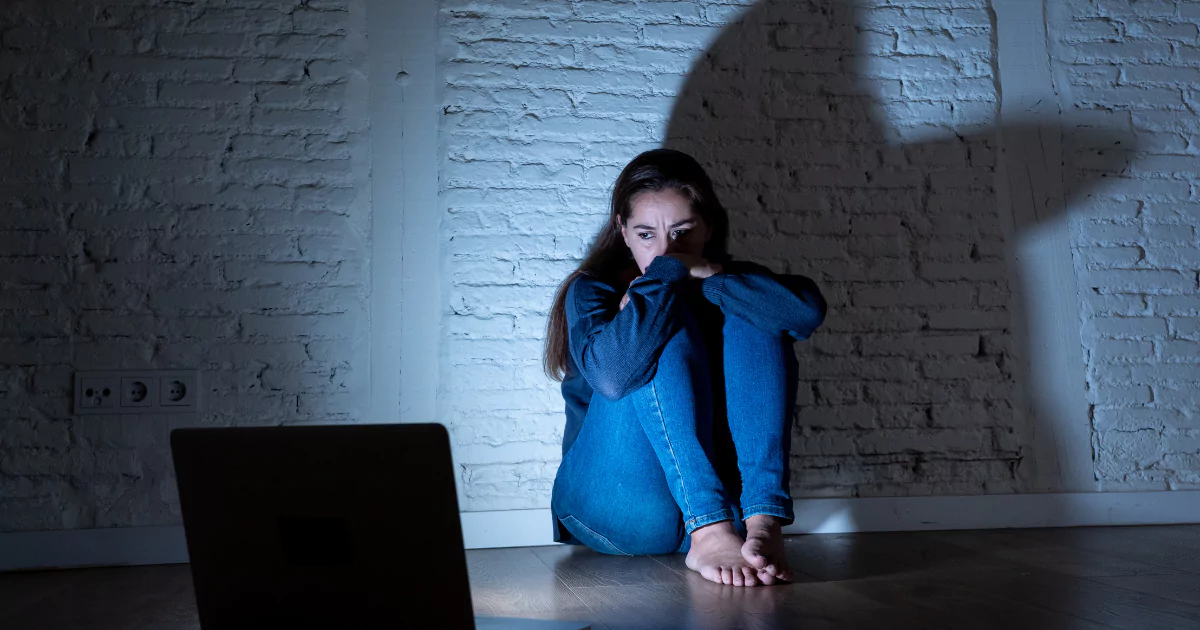Social media has a big impact on mental health, and understanding the effects of social media on mental health is important for everyone. One of the main effects of social media on mental health is that it can cause anxiety, especially when people feel pressure to look perfect or get more likes. Social media also makes it easy to compare ourselves to others, leading to low self-esteem. Another effect is that spending too much time online can cause sleep problems, as the bright screens can interfere with sleep. Cyberbullying is another serious problem, and it can make people feel sad or isolated.
Social media can also create stress because of constant notifications and the need to stay updated. While it can help people stay connected, it can also make them feel lonely if they spend too much time online. The effects of social media on mental health can even lead to depression in some cases. People may become addicted to social media, losing interest in real-life activities. Finally, it is important to take care of mental health by using social media in a balanced way.

Effects of Social Media on Mental Health
In today’s digital age, social media plays a big part in how we connect with others, share our lives, and learn about the world. But while it offers many benefits, it also comes with its own set of challenges, especially when it comes to mental health. Social media can have both positive and negative effects on our minds.
1. Increases Anxiety and Stress
The effects of social media on mental health are becoming more evident every day. When we spend too much time on platforms like Instagram or Facebook, we often see pictures of people living perfect lives. This can make us feel bad about ourselves like we’re not doing enough or achieving enough. The effects of social media on mental health can lead to feelings of insecurity and self-doubt. For example, if we see friends going on vacations or buying new things, we may compare ourselves to them.
This comparison can cause stress and anxiety, making us think we’re not keeping up. It’s similar to going to a store and seeing everyone buying new clothes. Even if we don’t need them, we might feel pressured to buy something just to fit in. The effects of social media on mental health are real, and it’s important to be aware of how it can impact our feelings. Taking breaks from social media can help us feel better and focus more on our lives.
2. Promotes Comparison and Lowers Self-Esteem
The effects of social media on mental health can be quite strong, especially when we start comparing ourselves to others. It’s easy to scroll through posts and think everyone else has a better life, looks better, or is more successful. This constant comparison can lower our self-esteem and make us feel like we’re not enough. The effects of social media on mental health are often seen in how people start feeling anxious or sad because of these comparisons.
We might focus too much on other people’s “perfect” pictures and forget that these images are often edited or not the full story. Over time, this can make us feel bad about ourselves. The effects of social media on mental health can also lead to people feeling isolated or lonely, even when they are surrounded by others online. It’s important to remember that social media only shows one side of the story and doesn’t reflect the reality of everyone’s life.
3. Causes Sleep Problems
Many people find it hard to stop using their phones before bed, especially with the constant pull of social media. The effects of social media on mental health can be noticeable, especially when we scroll through posts, videos, or images late at night.
The effects of social media on mental health go beyond just sleep. If we’re always checking updates, it can cause stress and anxiety or even make us feel lonely. Our minds stay active, focusing on the content, which makes it difficult to relax. Understanding the effects of social media on mental health can help us manage how and when we use it, leading to better rest and a healthier mindset.
4. Adds to Feelings of Loneliness
Even though social media connects us to friends and family, it can sometimes make us feel more alone. We might see everyone hanging out together or discussing events we weren’t invited to, which can make us feel left out. Ironically, even with so many people “virtually” around us, we can feel more isolated than ever.
It’s like being in a crowded room where no one talks to you. The more you look around, the lonelier you feel.

5. Promotes Negative Body Image
The effects of social media on mental health are becoming a growing concern, especially among young people. Many influencers and celebrities post edited and filtered photos that show a “perfect” version of their bodies. This can create unrealistic expectations about people’s appearance, leading to a distorted view of beauty. When teens constantly see these images, they may feel insecure or unhappy about their appearance.
The effects of social media on mental health can cause them to compare themselves to these photos and feel like they don’t measure up. Over time, this can lower their self-esteem and make them believe they are not good enough. The constant pressure to look perfect online can also lead to anxiety and stress. It’s important to remember that these images often don’t reflect reality. The effects of social media on mental health can be serious, but by being more aware of it, we can reduce the negative impact on our well-being.
6. Increases Cyberbullying
Unfortunately, social media also opens the door for bullying. People can say hurtful things from behind a screen, often without facing any consequences. This type of bullying, known as cyberbullying, can be just as harmful, if not worse, than in-person bullying. It can lead to depression, anxiety, and even suicidal thoughts, especially in young people who are still learning to handle emotions.
It’s like walking through a school hall where everyone whispers behind you. You can’t always see who is doing it, but the hurt lingers.
7. Disrupts Real-Life Relationships
Social media can sometimes interfere with our time with the people around us. It’s easy to get lost in a screen while ignoring the person beside you. This can affect friendships, family bonds, and romantic relationships. If we’re too focused on likes, comments, and posts, we might forget to show our loved ones the attention they need.

Imagine sitting at a dinner table with your family, but you’re scrolling through your phone instead of talking to them. Eventually, the people in front of you might feel ignored or unimportant.
8. Increases Feelings of FOMO (Fear of Missing Out)
Social media often shows the best moments of people’s lives—vacations, parties, and celebrations. This can lead to FOMO or the fear of missing out when we feel like everyone else is having fun without us. It can create feelings of jealousy and sadness, making us feel like we are missing out on experiences others enjoy.
It’s like seeing photos of a party you weren’t invited to. Even though you were fine staying at home, it can still make you feel like you missed something important.
9. Boosts Social Support
On the positive side, social media can also be a place to find support. Many people join online communities or groups where they can talk to others who understand what they’re going through. Social media can connect people and offer emotional support, whether about mental health, hobbies, or challenges.
It’s like joining a club where everyone shares similar interests. It can make you feel like you’re not alone, especially during tough times.
10. Can Lead to Addiction
Social media can become addictive. With constant updates, notifications, and the urge to check in, many people find it hard to disconnect. Spending hours on social media can take away time from other important activities, like studying, exercising, or spending time with family. This addiction can harm mental health by creating feelings of emptiness when we aren’t checking our feeds.
It’s like trying to stop eating your favorite snack, but you just can’t resist grabbing another bite. The more you consume, the harder it gets to stop.
Comparison of positive and negative effects of social media
| Positive Effects | Negative Effects |
|---|---|
| Social Support | Increased Anxiety |
| Better Communication | Low Self-Esteem |
| Educational Resources | Sleep Problems |
| Creativity and Expression | Cyberbullying |
| Online Communities | Weakens Relationships |
This short version quickly highlights the core positive and negative effects.
Conclusion
Social media can significantly impact our mental health. While it can bring people together and offer support, it has its downsides. From increasing stress and anxiety to lowering self-esteem and promoting unhealthy comparisons, it’s important to be mindful of how we use these platforms. By setting limits, focusing on real-life connections, and practising self-care, we can enjoy the benefits of social media without letting it negatively affect our mental well-being.
Remember, balance is key. Moderation is important in social media, just like anything else in life. Be kind to yourself and take breaks to ensure your mental health stays well.

